After a long road trip to Kumasi, Ghana, I made a beeline to the biggest market in all of West Africa! Come with me as I visit Kejetia Market, meet the vendors, and try some delicious Ghana street food in beautiful Kumasi, Ghana!
Kumasi is the second-largest city in the country and is the heartbeat of the Ashanti region, which is home to the famous Ashanti people. The city is well-known for its craftsmen and markets, and Kejetia Market is its most famous! It’s also known as Kumasi Central Market and contains over 10,000 shops and stalls! I have curated a list of things to do in Kumasi, making it easier for you to plan your visit to this place.

I’d hoped to start my day by trying a Ghanaian delicacy I hadn’t had yet called etor. It consists of boiled plantains with eggs, peanuts, onions, black pepper, chilies, avocado, and palm oil. I’d be exploring the market with my guide, Peter, from Jolinaiko Eco Tours!
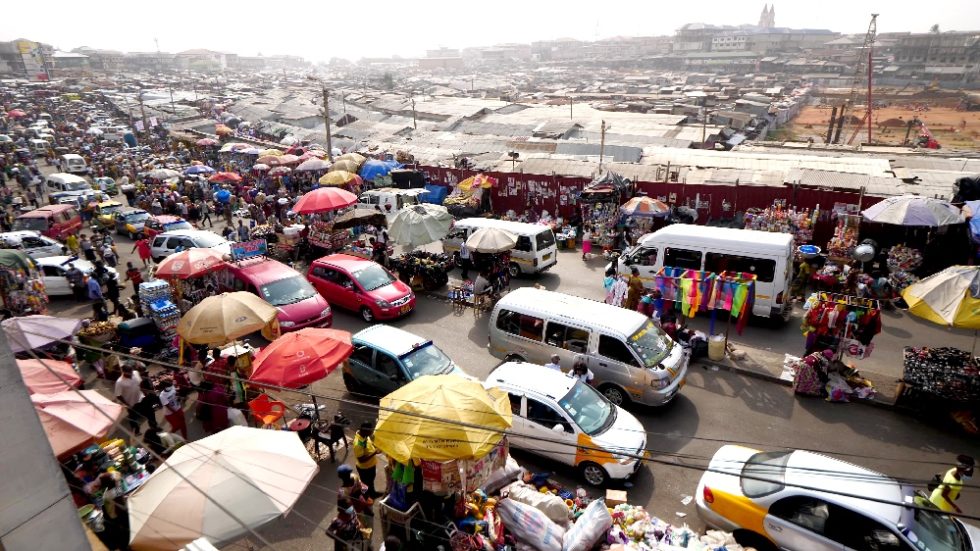
We walked through the mini-market down some narrow stalls with chickens running around. The vendors referred to me as “blondie,” which is their name for white people! We came across a vendor butchering chickens.

Etor is a special dish that’s often made for celebrations like birthdays and weddings. Watching the ladies boil the plantains and prepare the onions, fish, peanuts, chilies, and avocado was sensory overload. The smell from the chilies hit me right away!.
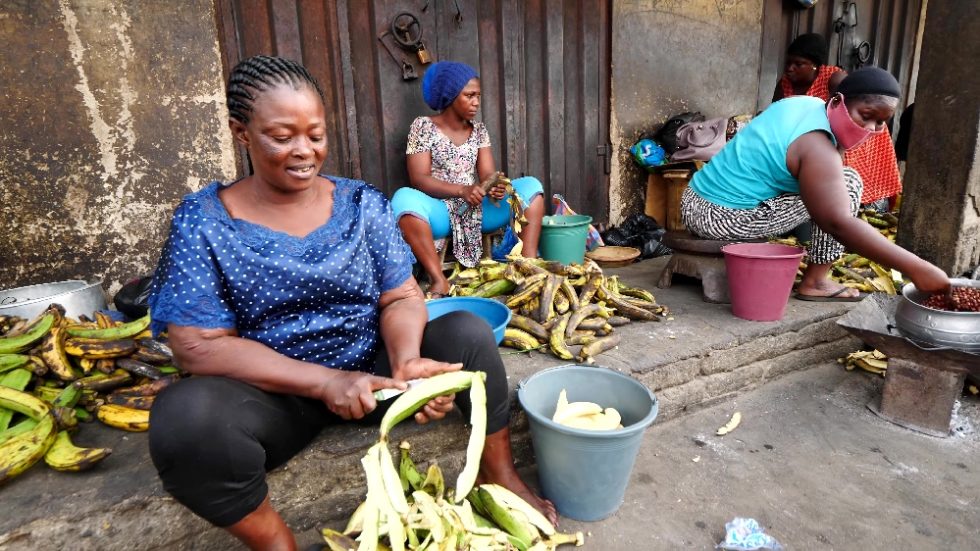
There were still 90 minutes to go until the etor would be ready, so Peter and I headed down a back road back to the market 5 minutes away. We headed to the top of a building to get an amazing view over the market. It’s even bigger than the market in Accra!
We got some fresh coconuts, drank the water, and ate the meat inside. It was so refreshing and cost me only 3 cedi for one. We got two for roughly $1.20 USD!
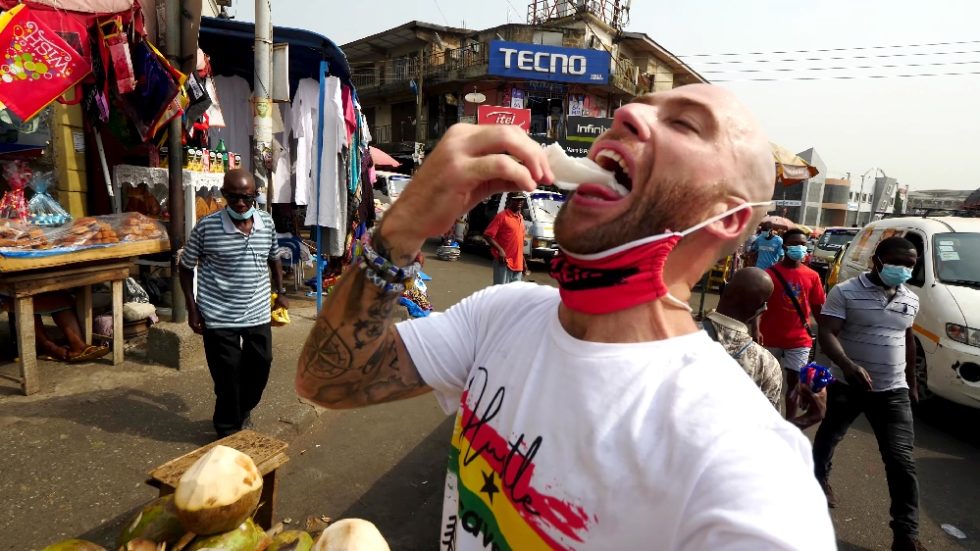
These markets are full of activity. There are tons of vendors and shoppers, as well as singers and musicians! Everyone there was really friendly!

We crossed over to the modern side of the market, where there were vendors butchering fresh meat. I saw cow heads, cow tails, stomach, kidneys, intestines, and more! On the ceiling are Ashanti symbols.
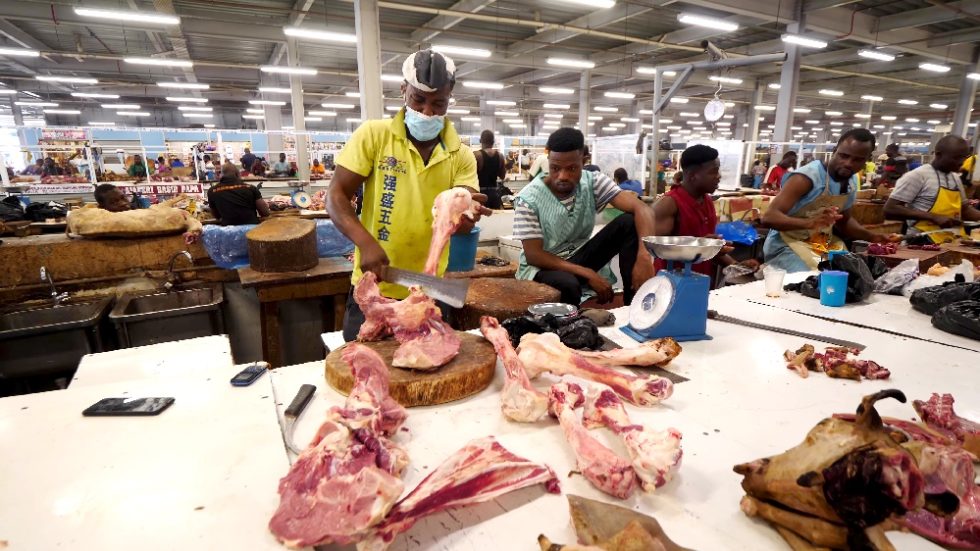
On the second level was a labyrinth of more vendors. The market was never-ending! We eventually reached some outdoor stairs leading back down to the street. We made it back to the women making the etor, who were mashing the boiled plantains.
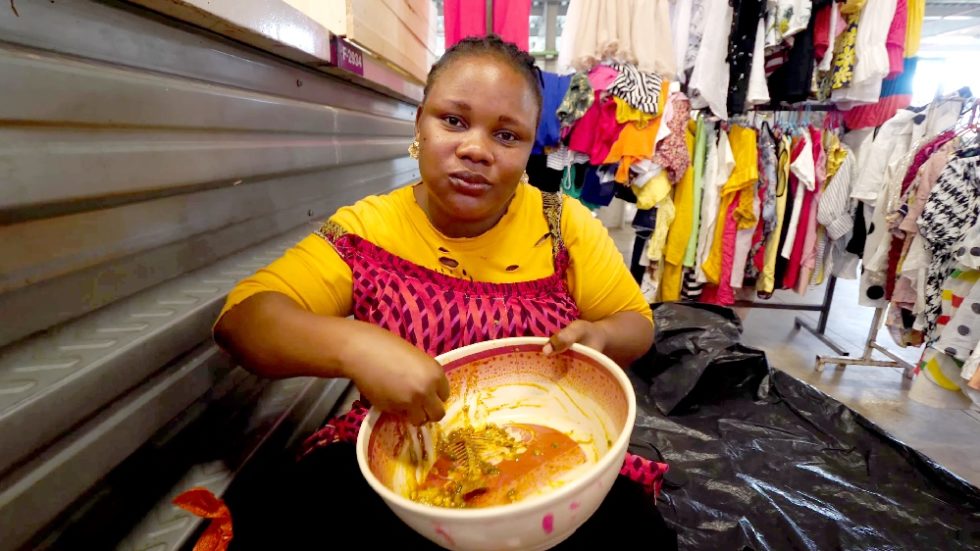
The plantains were a little crumbly but nice! They added the peanuts, eggs, onions, chilies, shito, and avocado. We skipped the fish because it was too bony. The etor only cost 5 cedi each!
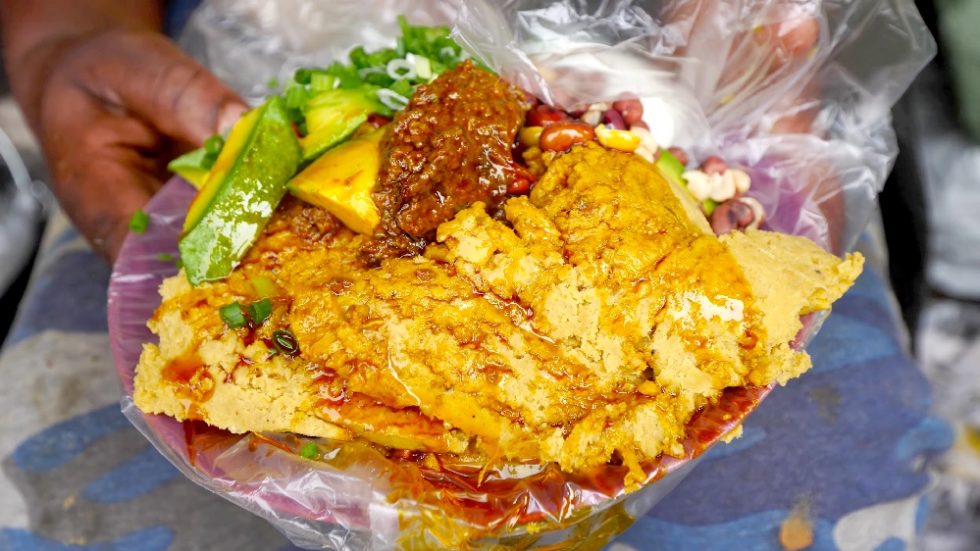
We ate at a nearby bench. The peanut sauce was incredible and I loved all the textures. The flavors were outstanding! The addition of the smooth avocado and crunchy peanuts was a nice touch as well. It was super filling and delicious!
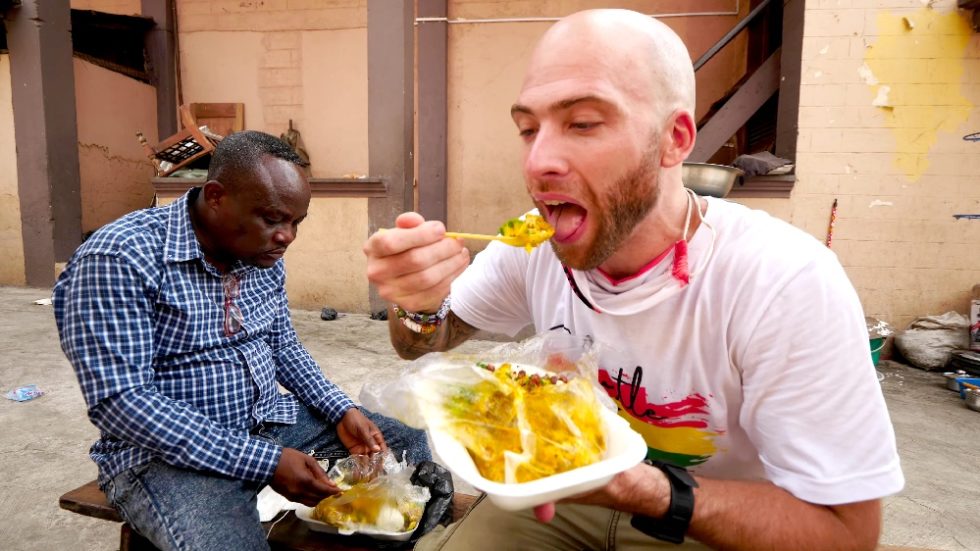
After eating, we continued deeper into the market and saw fermented corn stew, sandal makers, and more. On the top floor of the covered, modern part are textiles. Here, you can buy the famous kente cloth, which is very important to the Ashanti culture. They also have “designers” here, who tailor and sew the fabric!
Down in the main market, it was packed. There were lots of secondhand stalls selling bags, shoes, jewelry, clothes, and more. I met a woman making jollof rice with fresh vegetables and others selling jerseys!

There are train tracks running through the market, which is really unique! Then, I saw the items used for charms and protection, including dried chameleons and herbs!
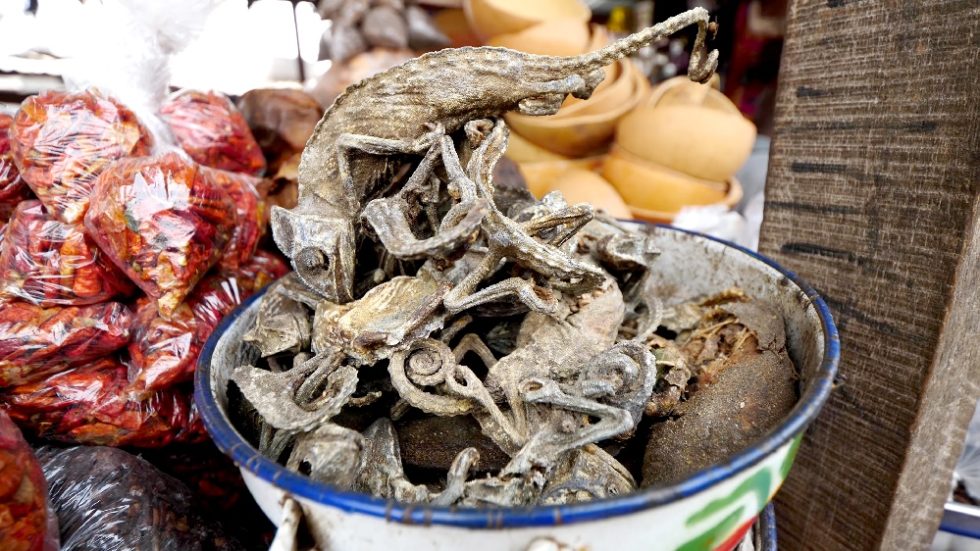
What an incredible and immersive visit to West Africa’s biggest market, Kejetia Market in Kumasi, Ghana! I had a blast exploring this incredible and lively place. Huge thanks to my guides at Jolinaiko Eco Tours for taking me there!

I hope you liked coming with me to explore Kejetia Market in Kumasi, Ghana! If you did, please give this video a thumbs up and leave a comment below. Also, please subscribe to my YouTube channel and click the notification bell so you don’t miss any of my travel/food adventures around the world!
Counter
101 Countries • 1432 Cities